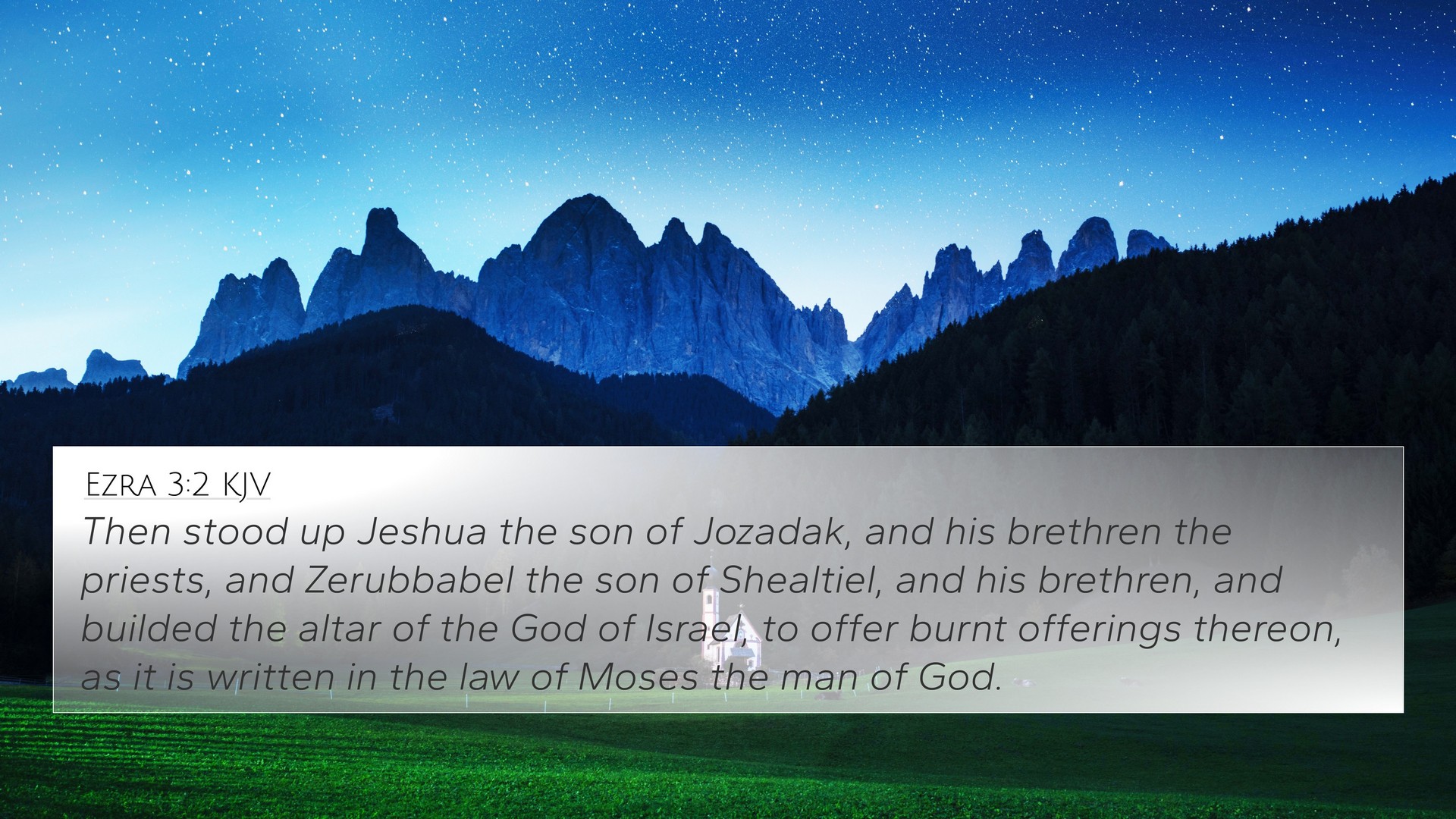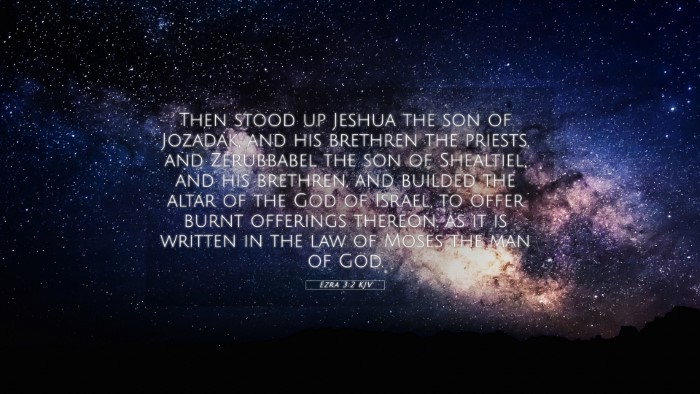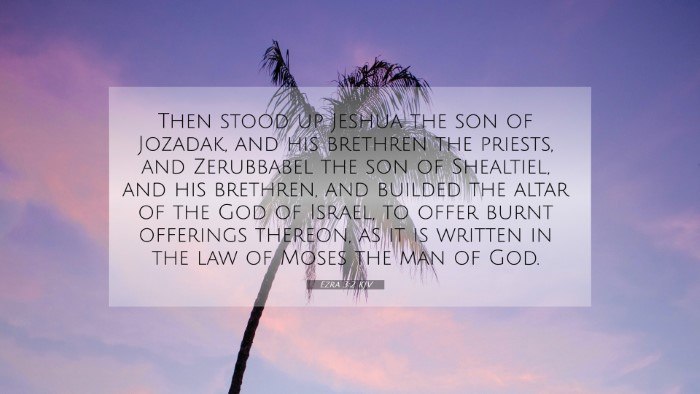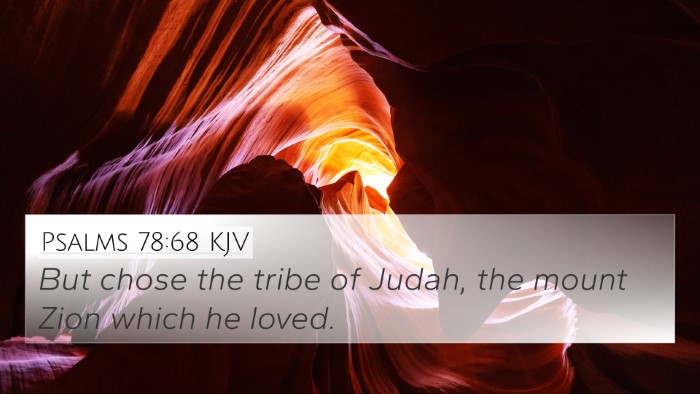Old Testament
Genesis Exodus Leviticus Numbers Deuteronomy Joshua Judges Ruth 1 Samuel 2 Samuel 1 Kings 2 Kings 1 Chronicles 2 Chronicles Ezra Nehemiah Esther Job Psalms Proverbs Ecclesiastes Song of Solomon Isaiah Jeremiah Lamentations Ezekiel Daniel Hosea Joel Amos Obadiah Jonah Micah Nahum Habakkuk Zephaniah Haggai Zechariah MalachiEzra 3:2 Similar Verses
Ezra 3:2 Cross References
Then stood up Jeshua the son of Jozadak, and his brethren the priests, and Zerubbabel the son of Shealtiel, and his brethren, and builded the altar of the God of Israel, to offer burnt offerings thereon, as it is written in the law of Moses the man of God.
Uncover the Rich Themes and Topics of This Bible Verse
Listed below are the Bible themes associated with Ezra 3:2. We invite you to explore each theme to gain deeper insights into the Scriptures.
Ezra 3:2 Cross Reference Verses
This section features a detailed cross-reference designed to enrich your understanding of the Scriptures. Below, you will find carefully selected verses that echo the themes and teachings related to Ezra 3:2 KJV. Click on any image to explore detailed analyses of related Bible verses and uncover deeper theological insights.
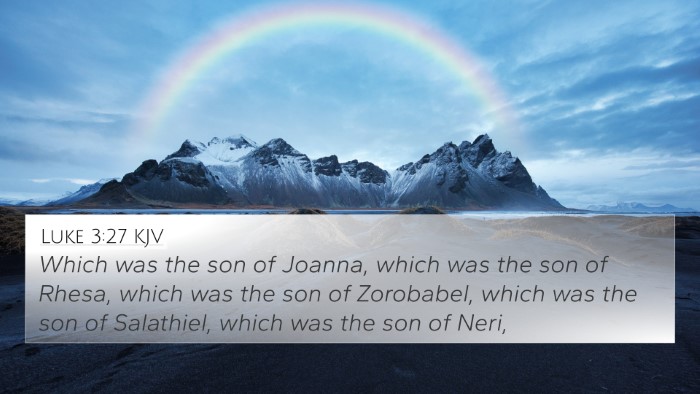
Luke 3:27 (KJV) »
Which was the son of Joanna, which was the son of Rhesa, which was the son of Zorobabel, which was the son of Salathiel, which was the son of Neri,
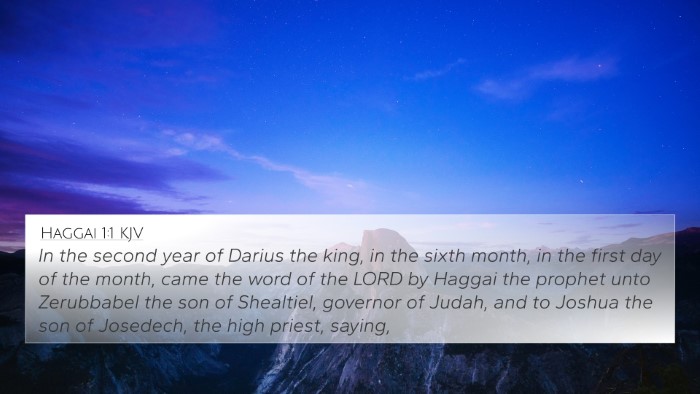
Haggai 1:1 (KJV) »
In the second year of Darius the king, in the sixth month, in the first day of the month, came the word of the LORD by Haggai the prophet unto Zerubbabel the son of Shealtiel, governor of Judah, and to Joshua the son of Josedech, the high priest, saying,

Ezra 2:2 (KJV) »
Which came with Zerubbabel: Jeshua, Nehemiah, Seraiah, Reelaiah, Mordecai, Bilshan, Mizpar, Bigvai, Rehum, Baanah. The number of the men of the people of Israel:
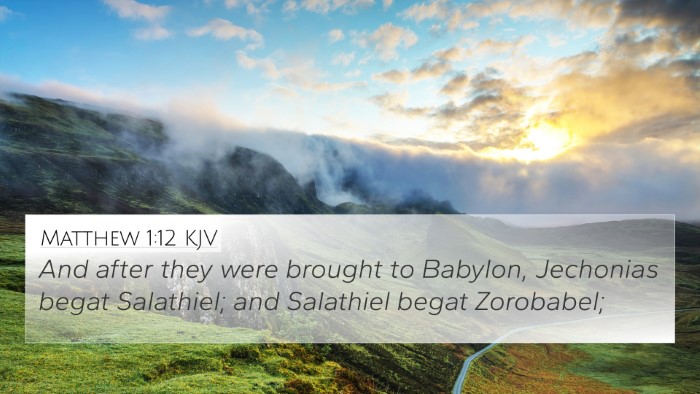
Matthew 1:12 (KJV) »
And after they were brought to Babylon, Jechonias begat Salathiel; and Salathiel begat Zorobabel;
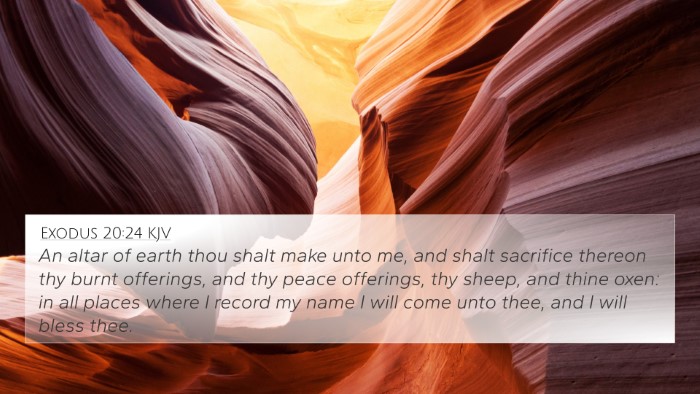
Exodus 20:24 (KJV) »
An altar of earth thou shalt make unto me, and shalt sacrifice thereon thy burnt offerings, and thy peace offerings, thy sheep, and thine oxen: in all places where I record my name I will come unto thee, and I will bless thee.
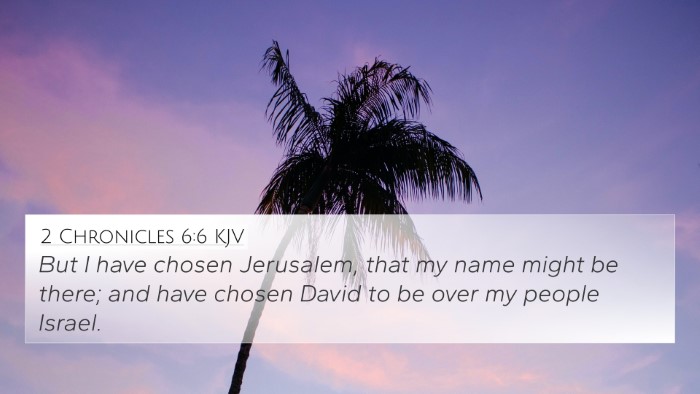
2 Chronicles 6:6 (KJV) »
But I have chosen Jerusalem, that my name might be there; and have chosen David to be over my people Israel.
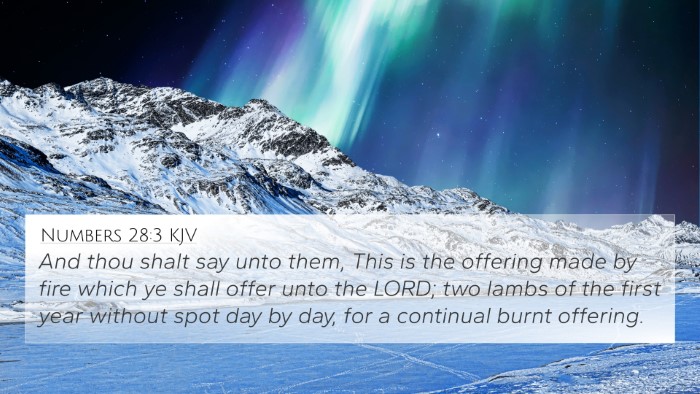
Numbers 28:3 (KJV) »
And thou shalt say unto them, This is the offering made by fire which ye shall offer unto the LORD; two lambs of the first year without spot day by day, for a continual burnt offering.
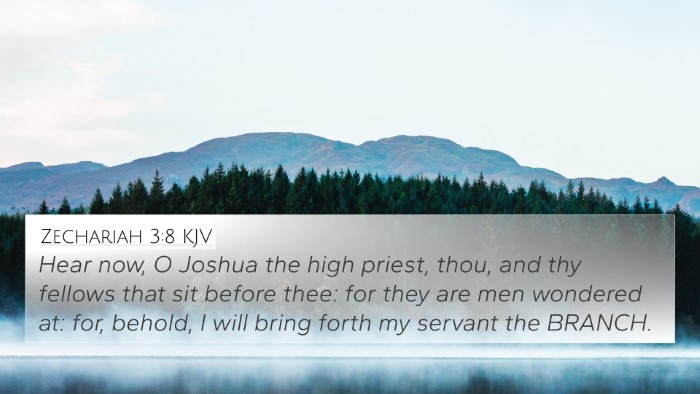
Zechariah 3:8 (KJV) »
Hear now, O Joshua the high priest, thou, and thy fellows that sit before thee: for they are men wondered at: for, behold, I will bring forth my servant the BRANCH.
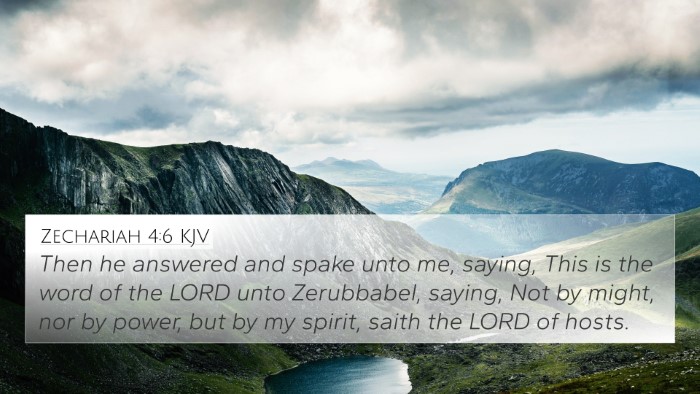
Zechariah 4:6 (KJV) »
Then he answered and spake unto me, saying, This is the word of the LORD unto Zerubbabel, saying, Not by might, nor by power, but by my spirit, saith the LORD of hosts.
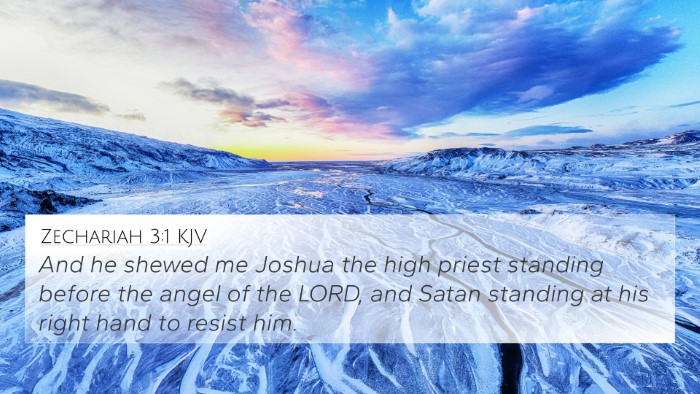
Zechariah 3:1 (KJV) »
And he shewed me Joshua the high priest standing before the angel of the LORD, and Satan standing at his right hand to resist him.
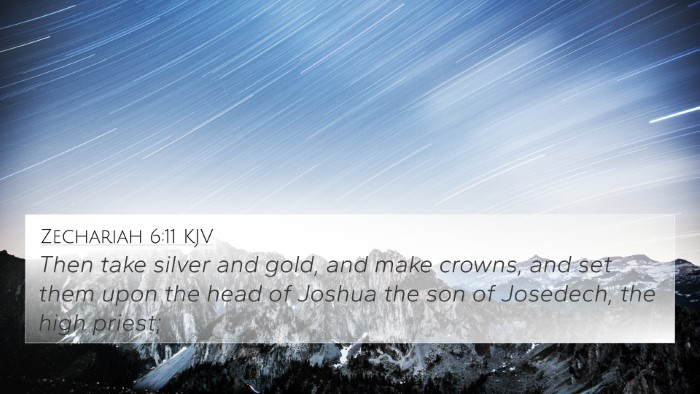
Zechariah 6:11 (KJV) »
Then take silver and gold, and make crowns, and set them upon the head of Joshua the son of Josedech, the high priest;
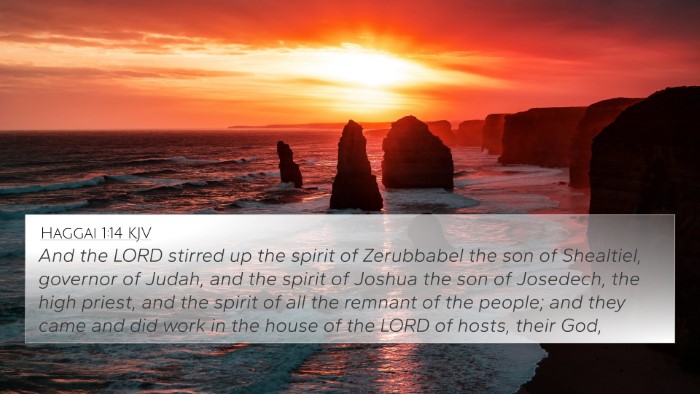
Haggai 1:14 (KJV) »
And the LORD stirred up the spirit of Zerubbabel the son of Shealtiel, governor of Judah, and the spirit of Joshua the son of Josedech, the high priest, and the spirit of all the remnant of the people; and they came and did work in the house of the LORD of hosts, their God,
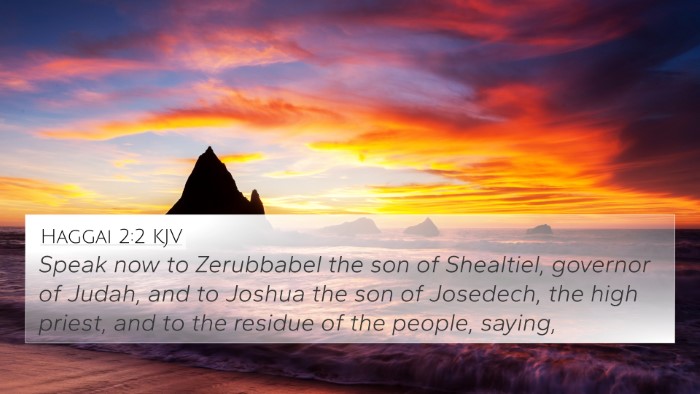
Haggai 2:2 (KJV) »
Speak now to Zerubbabel the son of Shealtiel, governor of Judah, and to Joshua the son of Josedech, the high priest, and to the residue of the people, saying,
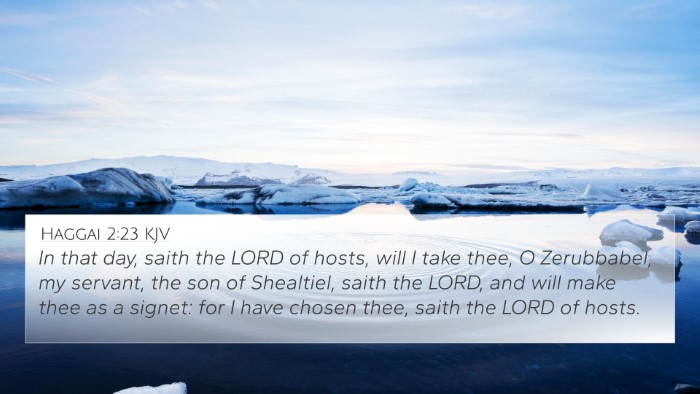
Haggai 2:23 (KJV) »
In that day, saith the LORD of hosts, will I take thee, O Zerubbabel, my servant, the son of Shealtiel, saith the LORD, and will make thee as a signet: for I have chosen thee, saith the LORD of hosts.

Deuteronomy 12:5 (KJV) »
But unto the place which the LORD your God shall choose out of all your tribes to put his name there, even unto his habitation shall ye seek, and thither thou shalt come:
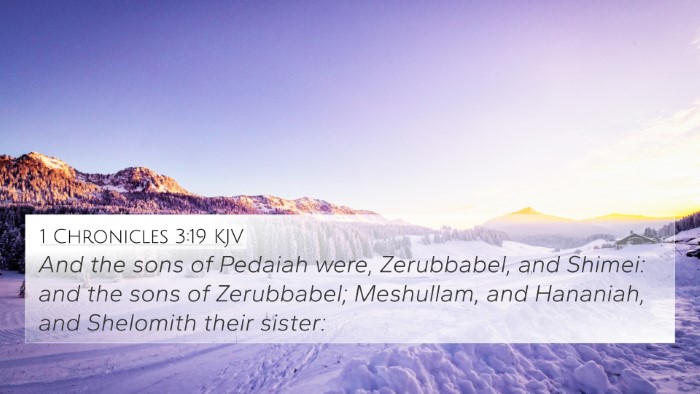
1 Chronicles 3:19 (KJV) »
And the sons of Pedaiah were, Zerubbabel, and Shimei: and the sons of Zerubbabel; Meshullam, and Hananiah, and Shelomith their sister:

Haggai 2:21 (KJV) »
Speak to Zerubbabel, governor of Judah, saying, I will shake the heavens and the earth;

Nehemiah 12:1 (KJV) »
Now these are the priests and the Levites that went up with Zerubbabel the son of Shealtiel, and Jeshua: Seraiah, Jeremiah, Ezra,
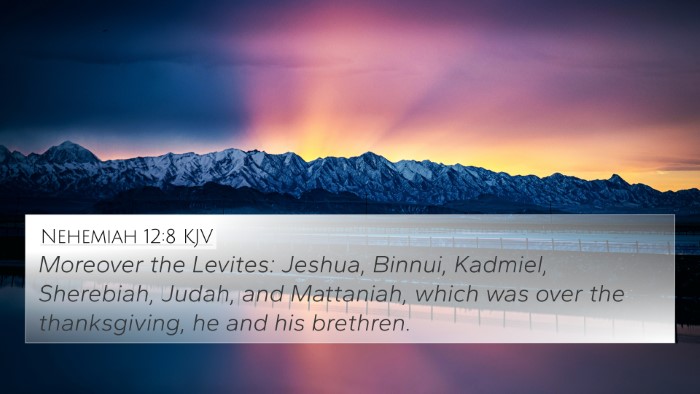
Nehemiah 12:8 (KJV) »
Moreover the Levites: Jeshua, Binnui, Kadmiel, Sherebiah, Judah, and Mattaniah, which was over the thanksgiving, he and his brethren.
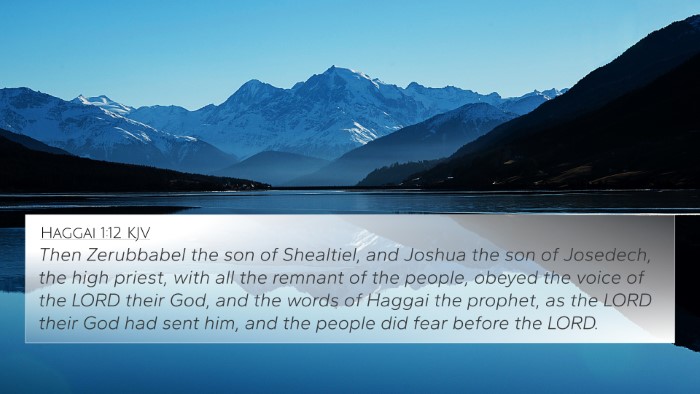
Haggai 1:12 (KJV) »
Then Zerubbabel the son of Shealtiel, and Joshua the son of Josedech, the high priest, with all the remnant of the people, obeyed the voice of the LORD their God, and the words of Haggai the prophet, as the LORD their God had sent him, and the people did fear before the LORD.
Ezra 3:2 Verse Analysis and Similar Verses
Ezra 3:2 - Meaning and Interpretation
Ezra 3:2 states: "Then stood up Jeshua the son of Jozadak, and his brethren the priests, and Zerubbabel the son of Shealtiel, and his brethren, and built the altar of the God of Israel, to offer burnt offerings thereon, as it is written in the law of Moses the man of God."
Summary of Insights
This verse marks a significant moment in the post-exilic period of Israel, highlighting the immediate response of the leaders to reestablish worship and sacrificial practices following their return from Babylonian exile. Various public domain commentaries provide insights into the verse's meaning as follows:
- Matthew Henry: Henry emphasizes the role of Jeshua and Zerubbabel as pivotal figures in restoring worship and the altar. He explains that their actions symbolizes a return to God and faithfulness to divine commandments. They follow the instructions laid out in the Law of Moses, which is critical for genuine worship.
- Albert Barnes: Barnes highlights the importance of the altar, suggesting it symbolizes the re-establishment of communion between God and His people. He notes that the act was both a physical and spiritual rebuilding, restoring the covenant relationship and obedience to the divine will.
- Adam Clarke: Clarke provides a detailed exposition of the names and roles of the key figures, Jeshua and Zerubbabel. He explains the significance of their lineage and how this underscores the continuity of God's plan through generations, alluding to the prophetic hope of the coming Messiah.
Bible Verse Cross-References
To deepen the understanding of Ezra 3:2, several cross-references highlight thematic connections throughout Scripture:
- 1 Chronicles 6:15 - Details the lineage of the priests, connecting Jeshua's ancestry to the earlier traditions.
- Haggai 1:14 - Encourages the people to undertake the building of the temple, consistent with the actions in Ezra.
- Zechariah 4:6-10 - Proclaims the significance of the rebuilding efforts and emphasizes God's role in empowering His people.
- Exodus 20:24 - Provides the foundational law regarding altars for burnt offerings, directly linked to the practices initiated in Ezra.
- Nehemiah 8:1-8 - Chronicles another restoration moment, showing the sustained emphasis on the Word of God post-exile.
- Matthew 5:24 - Jesus' admonition to offer gifts correctly to God reflects the proper orientation in worship that begins with the altar in Ezra.
- Romans 12:1 - New Testament interpretation of presenting our bodies as living sacrifices parallels the ritualistic sacrifices made at the altar.
- Hebrews 13:10 - Comments on the significance of the altar, indicating continuity in worship practices through Christ.
- Psalm 51:17 - Reflects the importance of a broken spirit as a true offering, underscoring the internal heart posture behind sacrifices.
- John 4:24 - Jesus teaches about true worship, emphasizing spirit and truth, revealing the fulfillment of what the altar represents.
Understanding the Connections
Ezra 3:2 exemplifies the restoration theme of the Old Testament. The act of building the altar sets a precedent for worship and sacrifice essential in the Israelite identity. This restoration mirrors many biblical themes:
- Worship and Obedience: The connection between worship and following God's law is reiterated throughout scripture, reinforcing the importance of aligning actions with divine instructions.
- Leadership and Restoration: The figure of Zerubbabel represents hope and a new beginning for Israel, akin to leaders emerging during times of spiritual renewal in history.
- Covenant and Continuity: Jeshua’s role ties into the broader narrative of God's covenant promises, showcasing a faithful remnant returning to their heritage.
- Type of Sacrifice: Old Testament sacrifices foreshadow the ultimate sacrifice made in Christ, providing a coherent thread through the biblical narrative.
Conclusion
Ezra 3:2 serves as a powerful reminder of the importance of worship, sacrifice, and leadership in reconnecting with God’s covenant promises. The insights gained from this verse encourage readers to explore not just the isolated text but its rich interconnectedness with the broader biblical narrative. By using tools for cross-referencing and examining the various connections between Bible verses, one can greatly enhance their understanding of scripture and its implications for faith and practice today.
Whether engaging in personal study or preparing for sermons, knowing how to find cross-references and identify connections between Old and New Testament texts enriches the exploration of God's Word. It opens the door to deeper insights into the thematic developments and how they inform our understanding of divine relationships throughout Scripture.
